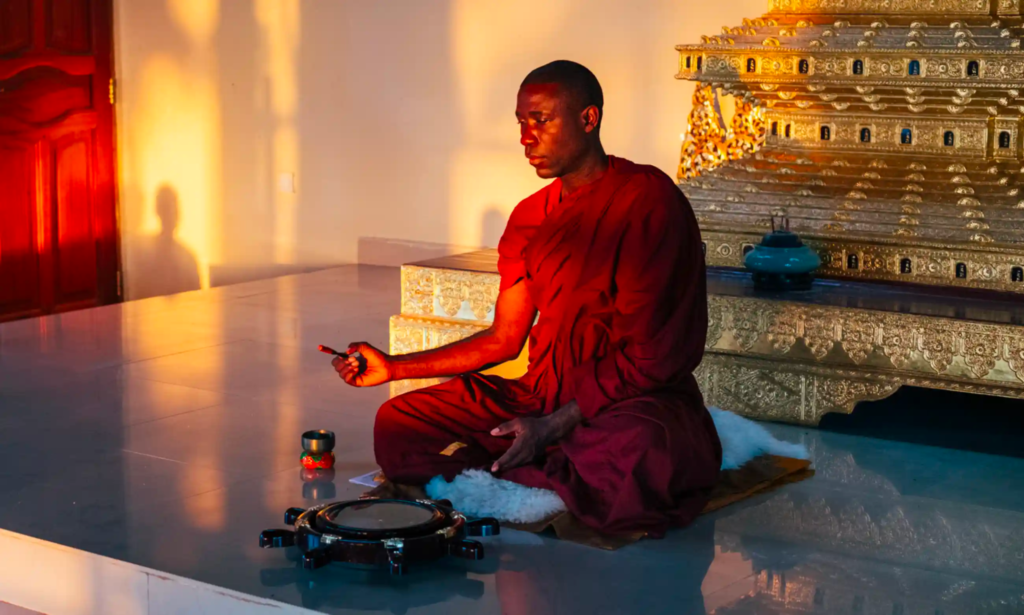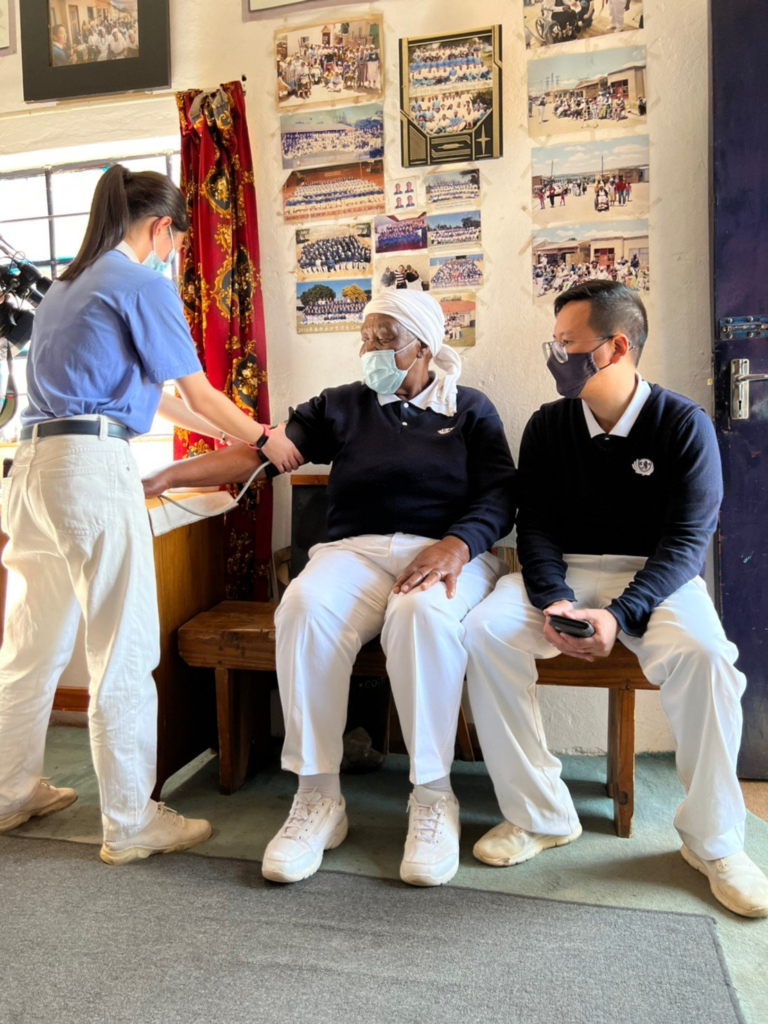By Anney Tuo and Alyssa Bernadette Cahoy
Buddhist humanitarian movements with diverse structures and aims have recently expanded in Africa. Many of these are missionary organizations performing social and medical outreach projects. Buddhist actors have undertaken humanitarian work to provide relief to communities while spreading Buddhist philosophies. The Theravadin monk Bhante Bhikkhu Buddharakkhita is a Ugandan leader spreading Buddhism in Africa, who sees the teachings of Buddhism as a way to relieve suffering. Along with establishing Uganda’s first temple, he has provided a peace school, education, and clean water to his local community (Okiror 2020).
Another model of Buddhist humanitarianism in Africa arises from organizations that directly engage in outreach without strong missionary aspirations. In fact, much of the Buddhist activity in the northern regions of Africa consists of the work of organizations that implement or support service-oriented programs rather than overt missionary projects. This form of Buddhist social action “emerged spontaneously as a Buddhist response to desperate human needs” (Clasquin-Johnson 2017, 360). One Buddhist humanitarian organization that has directed efforts to improve healthcare in Africa is the Izumi Foundation, a Japanese Buddhist organization in the Shinnyo-en tradition. Izumi partners with a wide range of organizations to advance healthcare in Africa as well as in Latin America, including non-governmental organizations, foreign medical institutions, community health centers, and local hospitals (Izumi 2022). Without a direct goal of growing Buddhist membership, this foundation focuses on aiding organizations that work in rural and remote areas in Africa and supports these programs with grants.
Another program without missionary objectives is the Buddhist Tzu Chi Foundation, which engages in on-the-ground work to improve healthcare in Africa. In South Africa in 2018, the Tzu Chi Foundation partnered with the UN-sponsored movement “Every Woman Every Child” to increase healthcare and education for women and children worldwide, committing to establishing health clinics in South Africa that provide screenings and immunizations.
Although Africa maintains a minimal number of Buddhists, with less than 0.1% of the population identifying as adherents, the continent has become a region in which Buddhist organizations carry out various forms of humanitarian work. Against this background, Buddhist medical efforts have emerged and reflected values of compassion and relief of suffering.
Photos

Buddhist monk Bhante Bhikkhu Buddharakkhita from Uganda. Source: The Guardian 
A provider at Mali Health, one of the many non-governmental organizations supported by the Izumi Foundation. Source: Izumi Foundation 
Tzu Chi medical volunteers with a patient in South Africa. Source: Tzu Chi South Africa Facebook
Scholarly Sources
- Clasquin-Johnson, Michel. “Buddhism in Africa.” In The Oxford Handbook of Contemporary Buddhism, edited by Michael Jerryson, 349-365. New York, NY: University of Oxford Press, 2017.
- Dessì, Ugo. “Soka Gakkai International in Post-Apartheid South Africa.” Religions 11, no. 11: 598. https://doi.org/10.3390/rel11110598.
- Okiror, Samuel. “‘It’s not weird or foreign’: the Ugandan monk bringing Buddhism to Africa – photo essay.” The Guardian, December 7, 2020. https://www.theguardian.com/global-development/2020/dec/07/ugandan-monk-bhante-buddharakkhita-buddism-buddhist-uganda-africa-mindfulness-meditation
External Links
- “Buddhist Tzu Chi Foundation.” Every Woman Every Child, September 24, 2019. https://www.everywomaneverychild.org/commitment/buddhist-tzu-chi-foundation/.
- “Home.” SGI South Africa. https://www.sgi-sa.org.za/.
- “IZUMI Foundation.” Izumi Foundation. www.izumi.org.
